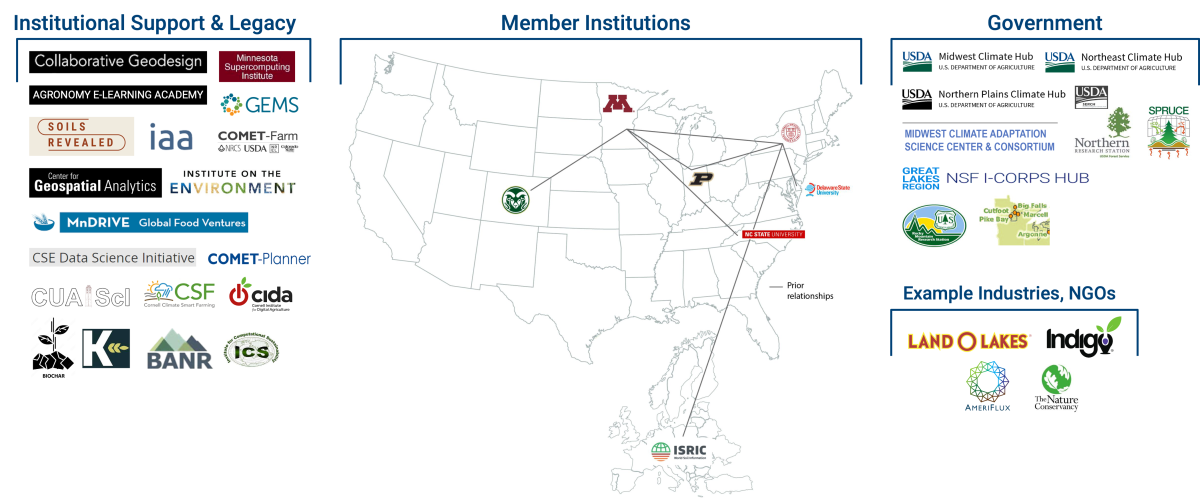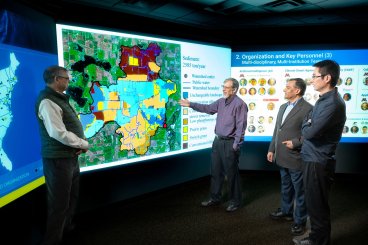Collaboration

Our team brings together needed disciplines (agronomy, applied economics, climate and atmospheric science, computer science, forestry, and soil science) and sectors (industry, government and non-governmental organizations, and academia).

University of Minnesota (UMN) hosts the USGS Midwest Climate Adaptation Science Center, a partnership of higher education and natural resource institutions advancing actionable science in response to the climate crisis. UMN also leads the International AgroInformatics Alliance, and has a strong research and collaboration portfolio in GHG flux measurement, ag and forest biomass productivity estimation, land use and cropping system changes, GHG markets, the SPRUCE case study in Northern MN peatlands, ecosystem models, and the GeoDesign tool; possesses unique remote sensing and climate data and data from the GEMS platform; has access to the Rosemount GHG Ameriflux site; participates in the Minnesota Climate Adaptation Partnership (MCAP) and the NSF Great Lakes Innovation Corps (I-Corps) Hub; has MS programs in Data Sc.; holds expertise from a climate-focused NSF Expedition; and has many NIFA funded projects.
Cornell University brings expertise in GHG flux estimation, remote sensing, climate modeling, and farmer driven tools, and Extension expertise through the Cornell Climate Smart Farming Program. The Cornell Institute for Digital Agriculture (CIDA) and the NSF Computational Sustainability Center bring together many disciplines, and The Soil Factory and Engaged Cornell provide a co-creation platform through Art Think.
Colorado State University is known for the COMET family of GHG tools, collaborates with Ameriflux sites in subalpine forest, offers unique educational programs in agricultural data sciences, and is developing a Carbon Farm Planning curriculum.
North Carolina State University (NCSU) adds expertise in remote sensing, administers a unique PhD program in geospatial analytics, and has access to the Ameriflux site in Loblolly Pines.
Purdue University has a strong professional education program in agriculture.
Industrial partners— Land O’Lakes, PepsiCo, and Sentera—bring access to a quarter of US farmers and a quarter of agricultural land for broad dissemination.
Government and Professional Partners—American Society of Agronomy, and USDA Forest Service Northern Research Station—bring science and policy expertise across different scales.
NGO Partners—The Nature Conservancy, WEAVE Community Resources for the Future, and ISRIC — World Soil Information add a civil society perspective.